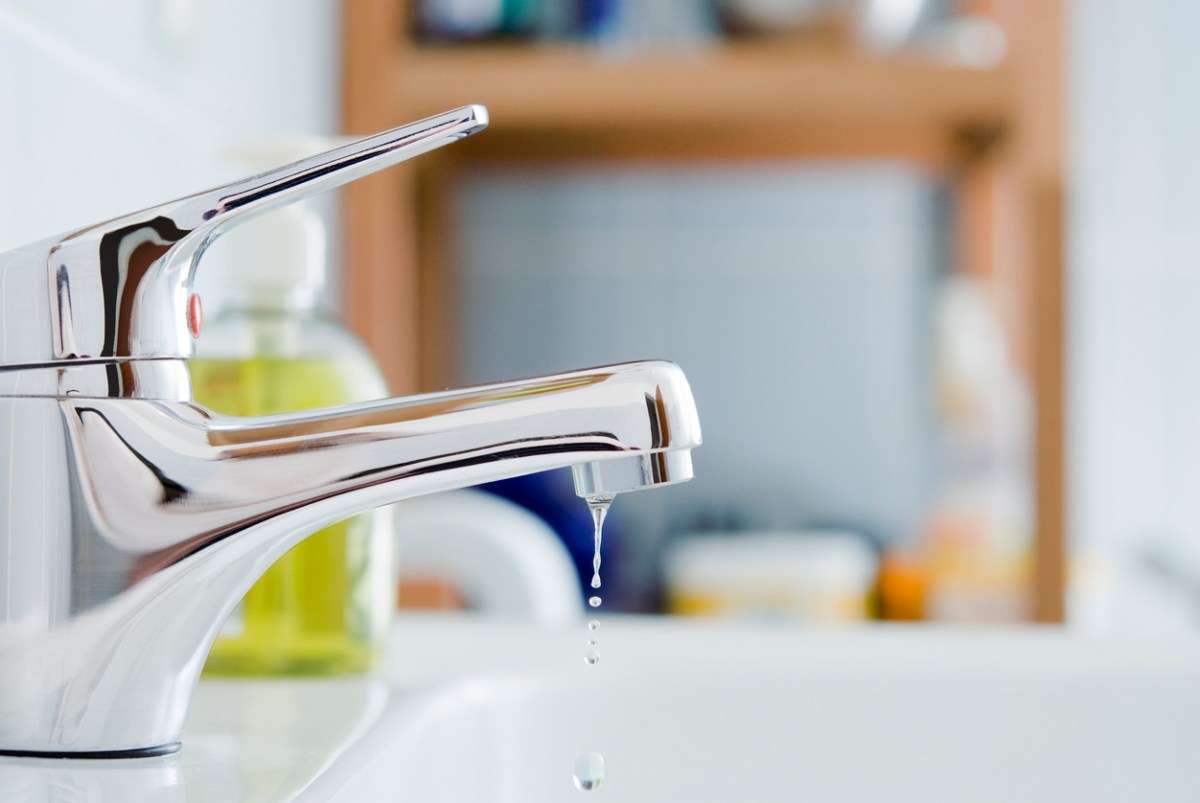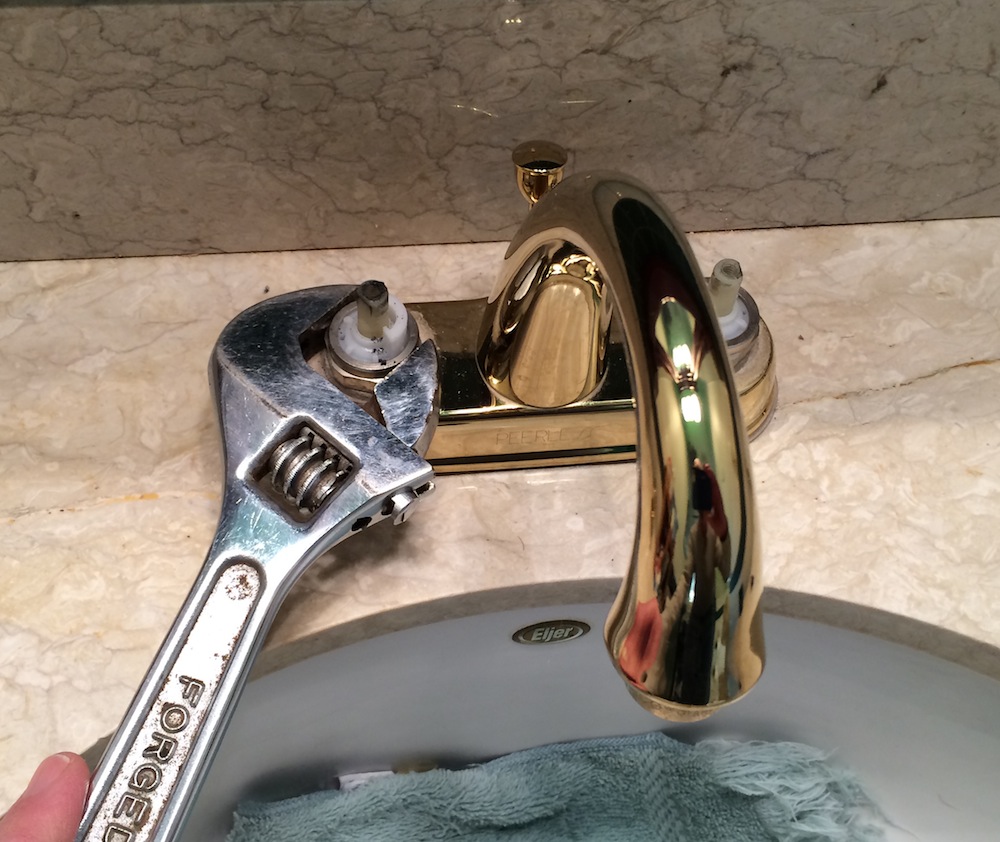Understanding the Significance of Dealing with a Leaking Faucet
Understanding the Significance of Dealing with a Leaking Faucet
Blog Article
What're your beliefs on Leaky Faucets: Why They Happen & What to Do About Them?

Leaking taps might appear like a small hassle, yet their impact exceeds just the nuisance of the sound. From wasting water to incurring unneeded economic costs and health and wellness threats, overlooking a dripping faucet can bring about numerous consequences. In this article, we'll delve into why it's important to address this typical family issue promptly and efficiently.
Wastage of Water
Environmental Impact
Dripping taps add dramatically to water wastefulness. According to the Epa (EPA), a single faucet trickling at one drip per secondly can lose more than 3,000 gallons of water per year. This not just stress water resources yet likewise impacts communities and wildlife depending on them.
Financial Costs
Raised Water Expenses
Beyond the ecological impact, trickling faucets can inflate water bills considerably. The accumulated wastage with time translates into greater utility costs, which can have been avoided with timely repairs.
Potential Residential Or Commercial Property Damages
Additionally, extended dripping can lead to harm to components and surface areas surrounding the tap. Water buildup can create staining, rust, and also architectural issues if left ignored, resulting in added repair service expenses.
Health Worries
Mold and Mold Growth
The consistent existence of dampness from a leaking faucet creates a perfect environment for mold and mildew and mold development. These fungi not only jeopardize interior air high quality but additionally present wellness dangers, especially for individuals with breathing conditions or allergic reactions.
Waterborne Illness
Stagnant water in trickling faucets can come to be a breeding ground for microorganisms and various other pathogens, boosting the danger of waterborne diseases. Pollutants such as Legionella bacteria prosper in stationary water, possibly causing major ailments when ingested or breathed in.
DIY vs. Expert Repair
Benefits and drawbacks of DIY Repair
While some may attempt to take care of a trickling tap themselves, DIY fixings feature their very own set of challenges. Without correct understanding and tools, do it yourself attempts can worsen the issue or bring about insufficient repairs, lengthening the problem.
Advantages of Hiring a Specialist Plumber
Hiring a specialist plumber ensures that the underlying root cause of the dripping faucet is dealt with properly. Plumbings have the proficiency and devices to detect and fix faucet issues effectively, conserving time and decreasing the threat of further damage.
Step-by-Step Overview to Dealing With a Dripping Faucet
Tools Required
Before attempting to deal with a leaking tap, collect the needed tools, including an adjustable wrench, screwdrivers, replacement components (such as washing machines or cartridges), and plumber's tape.
Common Tap Issues and Their Solutions
Determine the kind of faucet and the specific concern creating the drip. Typical problems consist of damaged washers, rusty valve seats, or faulty O-rings. Describe producer instructions or on-line tutorials for step-by-step guidance on repair services.
Preventive Measures
Normal Maintenance Tips
To stop leaking taps, carry out regular maintenance such as cleaning up aerators, inspecting for leakages, and changing damaged components quickly. In addition, take into consideration installing water-saving gadgets or updating to extra reliable components.
Relevance of Prompt Repair Works
Resolving dripping faucets as soon as they're observed protects against further water wastage and potential damage, eventually saving both water and money in the future.
Impact on Residential Property Worth
Assumption of Well-Maintained Building
Preserving a building in good condition, consisting of attending to upkeep problems like leaking faucets, boosts its viewed value and worth amongst possible purchasers or renters.
Impact on Resale Value
Residences with properly maintained plumbing components, including taps, command higher resale values in the property market. Addressing leaking taps can add to a positive perception throughout property evaluations and settlements.
Ecological Duty
Specific Contribution to Conservation
Taking responsibility for repairing leaking faucets lines up with wider efforts toward water preservation and environmental sustainability. Every individual's activities jointly make a substantial effect on protecting precious resources.
Lasting Living Practices
By focusing on prompt repairs and taking on water-saving behaviors, people add to sustainable living techniques that benefit both present and future generations.
Verdict
Dealing with a dripping tap surpasses mere ease; it's a necessary step towards saving water, reducing monetary expenses, and safeguarding health and wellness and residential or commercial property. Whether via DIY repair services or specialist support, taking action to take care of trickling faucets is a little yet impactful way to promote liable stewardship of sources and add to a healthier, extra sustainable future.
How to Fix a Leaky Faucet: Step-by-Step Repair Guide
A leaky faucet may seem like a simple annoyance, but if it's not fixed promptly, that leak could cost hundreds to potentially thousands. From water damage to mold, mildew, and high water bills, even a tiny leak can be catastrophic if left unattended. Damage like this can even affect the overall value of your home, so it's important to take the right approach for leaky faucet repair. You may need the help of a plumber in some cases, but we've got a few tips you can try on how to fix a leaky faucet before calling the pros.
Four Faucet Types
When you're learning how to fix a leaky faucet, the first step is knowing what kind of faucet you're working with! There are four common types.
Cartridge Faucets
Cartridge faucets come in one- or two-handled varieties. In one-handled cartridge faucets, hot and cold water combines in a single cartridge. In the two-handled versions, hot and cold water are controlled separately and mixed in the faucet.
Ball Faucets
Ball faucets have a single lever you push up and down to adjust the pressure and rotate to change the temperature. A slotted metal ball controls the amount of water allowed into the spout.
Compression Washer Faucets
They're the oldest type of faucet, but they're still used in many homes — especially older ones. Compression faucets have two separate handles that, when turned, raise or lower the washer that seals a water valve. This valve stops water from flowing through the faucet when it is turned off.
Disc Faucets
Disc faucets rarely need to be repaired due to their maintenance-free design. The water flow is controlled by two discs — the upper one raises and lowers against a fixed lower disc, creating a watertight seal. If your disc faucet starts leaking, you may need to replace the seals or clean residue buildup from the inlets.
Fixing a Leaky Faucet
Step 1: Turn Off the Water
Whether you're learning how to fix a leaky bathtub faucet or how to fix a leaky kitchen faucet, always turn off the water supply to your working area when you're fixing a leak. The last thing you want is a flood added to your list of things to fix.
Look for the shutoff valves below your sink or around the tub and turn them clockwise to stop the water flow. If your faucet doesn't have shutoff valves, you may need to turn off the water for the whole house. Check to make sure it's off by turning the faucet on. If nothing comes out, you're ready to start the repair.
Step 2: Take Apart the Faucet
How you disassemble your faucet depends on the type of fixture you have. You can use a flathead screwdriver to remove the caps on top of the handle or handles for cartridge and compression faucets. Inside, you should see handle screws. Unscrew these with a screwdriver to remove the handle.
Disc- and ball-style faucets will typically have an inlet screw near the handle, and removing that will reveal the interior of the faucet.
Detach the Valve Stem
For cartridge- and compression-style faucets, you'll see the inner valve stem or cartridge once you remove the faucet handles. If you have a compression faucet, unscrew the brass valve stem. If you have a cartridge faucet, pull out the cartridge. If your cartridge has been in place for a while, it may require some tools or extra force to remove it due to mineral deposits.
Examine and Replace Parts
Once you've removed the parts, check them out to confirm what needs to be replaced. You may see corroded rubber washers, O-rings, stems, or cartridges. On a ball-style faucet, check the seats and springs for damage.
If you need to repair a leaky disc faucet, check the inlet and seals on the lower disc.
Once you determine what parts must be replaced, visit your local hardware store. Bring the damaged parts with you to ensure you can purchase the correct components to replace them.
Clean Valves and Faucet Cavity
If you've removed a stem or cartridge, you may notice mineral buildup in the faucet's threads. Use white vinegar to clean the valve seat by soaking it for a few minutes, then scrub it away with a soft toothbrush and rinse with warm water. You can also clean the interior of the faucet in the same way.
Reassemble the Faucet
Once your faucet is cleaned and the required parts have been replaced, it's time to reassemble it. Put the pieces back together and slowly turn the water supply back on. Doing this slowly is crucial because too much initial water pressure can damage the new hardware you've just installed.
https://homewarranty.firstam.com/blog/how-to-fix-leaky-faucet

As a serious person who reads about Why It's Important to Fix Leaky Faucets, I figured sharing that excerpt was worth the trouble. For those who enjoyed our article kindly remember to share it. Kudos for being here. Return soon.
Report this page